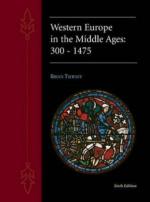|
This section contains 525 words (approx. 2 pages at 300 words per page) |

|
Peter Abelard, Sic et Non (early 12th century)—Reflecting his age's infatuation with dialectics, Abelard cleverly lines up apparently contradictory teachings on the part of the fathers of the church and shows through logical analysis that the contradictions are only superficial.
Anselm of Canterbury, Proslogion (mid 11th century)—Responding to a plea from his monks who wanted one single argument to prove not only God's existence but everything else we believe about God, Anselm creates the most intriguing and most discussed argument of all time, the genius of which is to force the atheist into a contradiction if he continues in his denial of God.
Augustine (Aurelius Augustinus), On the Free Choice of the Will (c. 400) and Confessions (c. 397–400)—The first work, widely regarded as the best philosophical writing by this early Christian theologian, introduces to Western thought the notion that the...
|
This section contains 525 words (approx. 2 pages at 300 words per page) |

|



